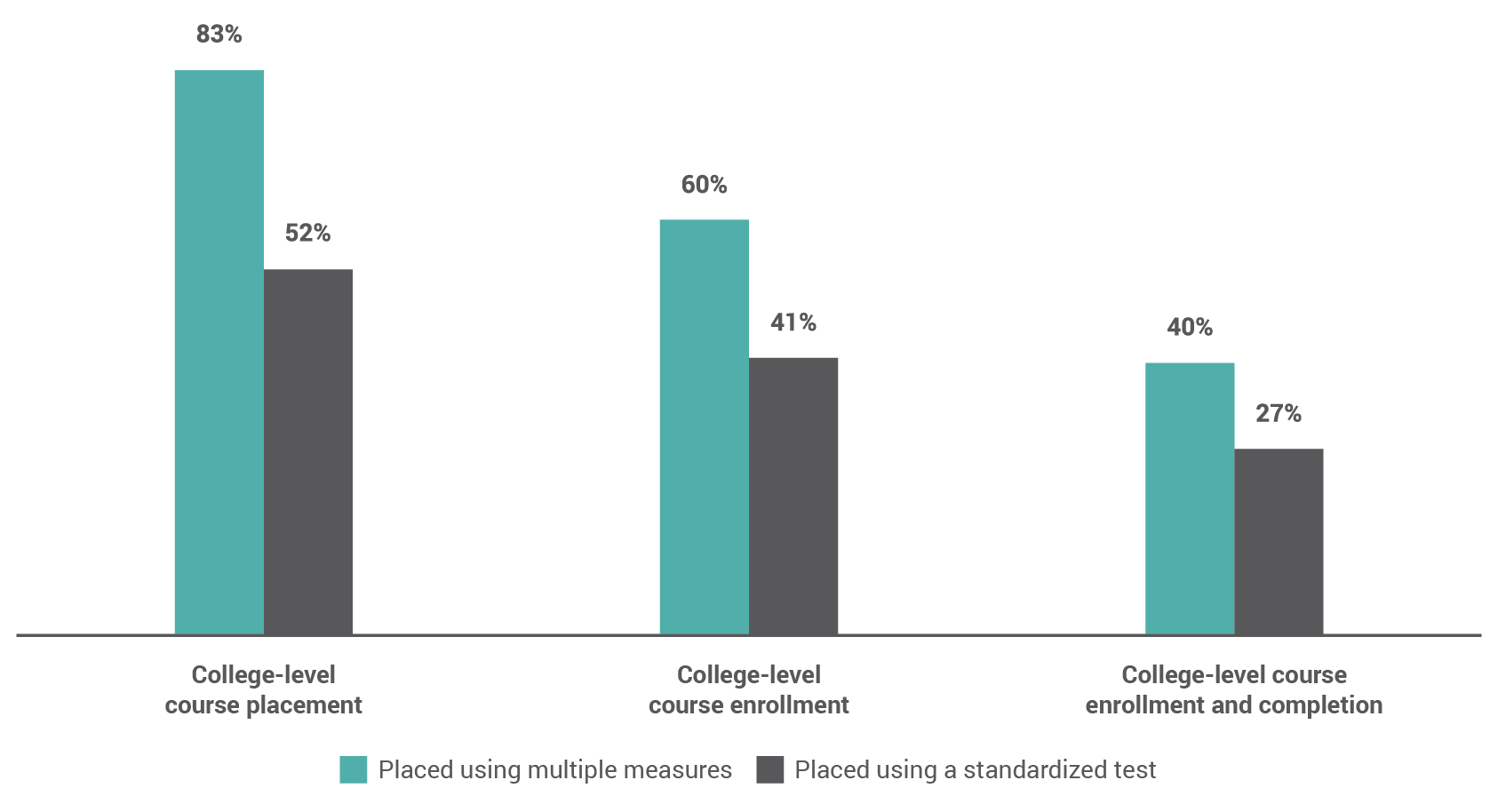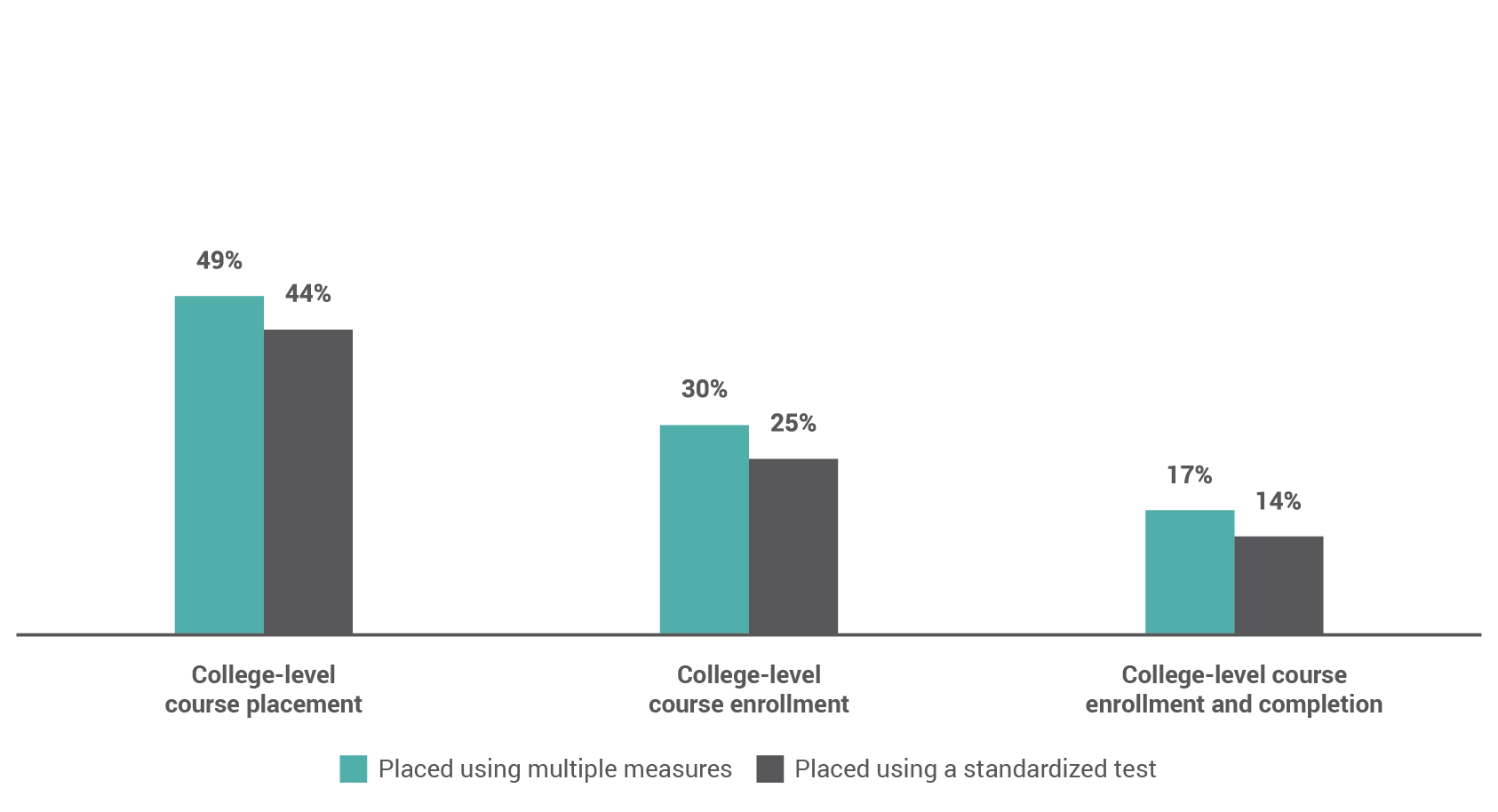Since 2014, IES has funded the Center for the Analysis of Postsecondary Readiness (CAPR) to answer questions about the rapidly evolving landscape of developmental education at community colleges and open-access four-year institutions. CAPR is providing new insights into how colleges are reforming developmental education and how their reforms are impacting student outcomes through three major studies:
- A survey and interviews about developmental education practices and reform initiatives
- An evaluation of the use of multiple measures for assessing college readiness
- An evaluation of math pathways.
Preliminary results from these studies indicate that some reforms help more students finish their developmental requirements and go on to do well in college-level math and English.
National Study of Developmental Education Policies and Practices
CAPR has documented widespread reform in developmental education at two- and four-year colleges through a national survey and interviews on developmental education practices and reforms. Early results from the survey show that colleges are moving away from relying solely on standardized tests for placing students into developmental courses. Colleges are also using new approaches to delivering developmental education including shortening developmental sequences by compressing or combining courses, using technology to deliver self-paced instruction, and placing developmental students into college-level courses with extra supports, often called corequisite remediation.
Developmental Math Instructional Methods in Public Two-Year Colleges (Percentages of Colleges Implementing Specific Reform Strategies)

Notes: Percentages among two-year public colleges that reported offering developmental courses. Colleges were counted as using an instructional method if they used it in at least two course sections. Categories are not mutually exclusive.
Evaluation of Developmental Math Pathways and Student Outcomes
CAPR has teamed up with the Charles A. Dana Center at the University of Texas at Austin to evaluate the Dana Center Mathematics Pathways (DCMP) curriculum at four community colleges in Texas. The math pathways model tailors math courses to particular majors, with a statistics pathway for social science majors, a quantitative reasoning pathway for humanities majors, and an algebra-to-calculus pathway for STEM majors. DCMP originally compressed developmental math into one semester, though now the Dana Center is recommending corequisite models. Instructors seek to engage students by delving deeply into math concepts, focusing on real-world problems, and having students work together to develop solutions.
Interim results show that larger percentages of students assigned to DCMP (versus the traditional developmental sequence) enrolled in and passed developmental math. More of the DCMP students also took and passed college-level math, fulfilling an important graduation requirement. After three semesters, 25 percent of program group students passed a college-level math course, compared with 17 percent of students assigned to traditional remediation.
Evaluation of Alternative Placement Systems and Student Outcomes (aka Multiple Measures)
CAPR is also studying the impact of using a combination of measures—such as high school GPA, years out of high school, and placement test scores—to predict whether students belong in developmental or college-level courses. Early results from the multiple measures study show that, in English and to a lesser extent in math, the multiple measures algorithms placed more students into college-level courses, and more students passed those courses (compared to students placed with a single test score).
College-Level English Course Placement, Enrollment, and Completion in CAPR’s Multiple Measures Study (Percentages Compared Across Placement Conditions)

College-Level Math Course Placement and Completion in CAPR’s Multiple Measures Study

Looking Ahead to the Future of Developmental Education
These early results from CAPR’s evaluations of multiple measures and math pathways suggest that those reforms are likely to be important pieces of future developmental education systems. CAPR will release final results from its three studies in 2019 and 2020.
Guest blog by Nikki Edgecombe and Alexander Mayer
Nikki Edgecombe is the principal investigator of the Center for the Analysis of Postsecondary Readiness, an IES-funded center led by the Community College Research Center (CCRC) and MDRC, and a senior research scientist at CCRC. Alexander Mayer is the co-principal investigator of CAPR and deputy director of postsecondary education at MDRC.